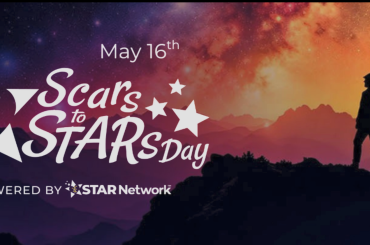What if God is The Source of My Trauma?
“I just can’t get on board with the whole ‘God’ thing,” a newcomer says to their sponsor.
“Well, it’s easy, in the 12 steps you can use a God of your own understanding,” the sponsor replies.
“And what if the only understanding that I have of God is this abusive figure who shamed me and always seemed to let me down?”
The critique is legitimate, and it is a frustration that I hear many people attempting recovery express, either directly or indirectly. Even though 12-step recovery promotes the language of Higher Power or God of one’s understanding, that language can feel revolting if, in your lived experience, it feels that some divine deity up there on a cloud let you down. The language can be triggering or activating for someone who grew up in high demand or otherwise conservative religion, perhaps even a cult. These blocks to connecting with God or Higher Power are legitimate traumas or wounds that deserve care as part of a recovery process. And if you are a sponsor, treatment counselor, or someone else in position of power, it can feel like you are adding acid to the wound if you respond with something like, “You just need to work on your resentment towards God.”
Trauma comes from the Greek word meaning wound, and we as helping professionals now understand that trauma can show up in a variety of clinical diagnoses, not just post-traumatic stress disorder (PTSD). For many people in recovery, the traumas they experienced can also be classified as abuse, which generally refers to mistreatment or exploitation in relationships where there is a power differential. While emotional, physical, verbal, and sexual abuse are well-known in the general public and to people in recovery, spiritual abuse tends to be less familiar. Yet it is everywhere; it is a very real form of abuse that is noted in the academic and clinical literature related to cults, and spiritual or religious groups that we might consider to be more mainstream. The working definition of spiritual abuse that I use the use of God or any other spiritual idea, like enlightenment or even recovery, is used as a weapon to control, to manipulate, or to demean. Spiritual abuse can happen in all religious denominations and organizations, communities like yoga schools or meditation circles that might tout themselves as “spiritual but not religious,” in the home, or at the level of the state or government.
Another complicating factor for being in recovery can be that sometimes spiritual abuse accompanies other forms of abuse. For instances, in many cases of sexual abuse, an abuser may tell the victim that what is happening is “God’s will,” and threaten that they as the victim will somehow lose favor with God if they say no or tell. In cases of physical abuse, many abusers will claim that they are hitting their child or their spouse because it is their “God-given authority” as head of a household. People may have even grown up in countries where they experienced serious mistreatment at the hands of the government, perhaps even being subjected to starvation or endless wars that were seemingly waged in God’s name.
It’s no wonder that many people come into recovery not wanting anything to do with God/god/Higher Power.
In an ideal setting, a person seeking recovery in any type of group or through professional therapy will be met where they are at around anything God and spiritual. I was fortunate to have this experience with a very gentle sponsor, and through her example, in the rooms of recovery I met a God who loved me. I eventually realized that I took no issue with God, yet I had serious wounds to address from what people did in God’s name. Even in programs like the 12-steps that are designed to be spiritual but not religious, it is imperative that we not shame people into accepting any kind of Higher Power, especially if we are trying to put our version of Higher Power on to someone else. If a person like the one who opens this article says, ““I just can’t get on board with the whole ‘God’ thing,” let’s embrace them with an attitude of acceptance and curiosity.
I would have liked to have heard the sponsor say something like, “I’m wondering if you can tell me more about that,” or “What is making it difficult to get on board.”
Like any other types of trauma or abuse, outside clinical help might be needed to assist the person in addressing the wounds that are keeping them stuck. Developing healthier or more adaptive paths for spiritual practice can also be important to certain folks’ healing process, which gentle exposure to the 12-steps can support. Rigidity and dogmatism in approach the 12-steps is generally not helpful, which is why many survivors of spiritual abuse have found good help and support in more Secular AA settings or in alternative recovery fellowships. So much of spiritual abuse and religious trauma is about choice being taken away from the individual. I am grateful to be living in an age where there are more choices and alternatives available to people for how they approach recovery and healing.









1 Comment
Sister, God does not abuse us. He allows us to run the course of our own lives, which may certainly abuse ourselves. God desires that all people do not abuse themselves, but live their lives according to His precepts. If I choose to abuse alcohol, drugs, food, sex, or anything else, it is because I have the wrong idea of who God is, and what He desires for our lives. Any thoughts of my abuse flow from my misdirected understanding of God. He so loved the world, that He sent His Only Son, Jesus Christ to be THE substitute for our sins. So, me, you, and everyone else just need to say yes to the free offer and with His help, turn our lives around.